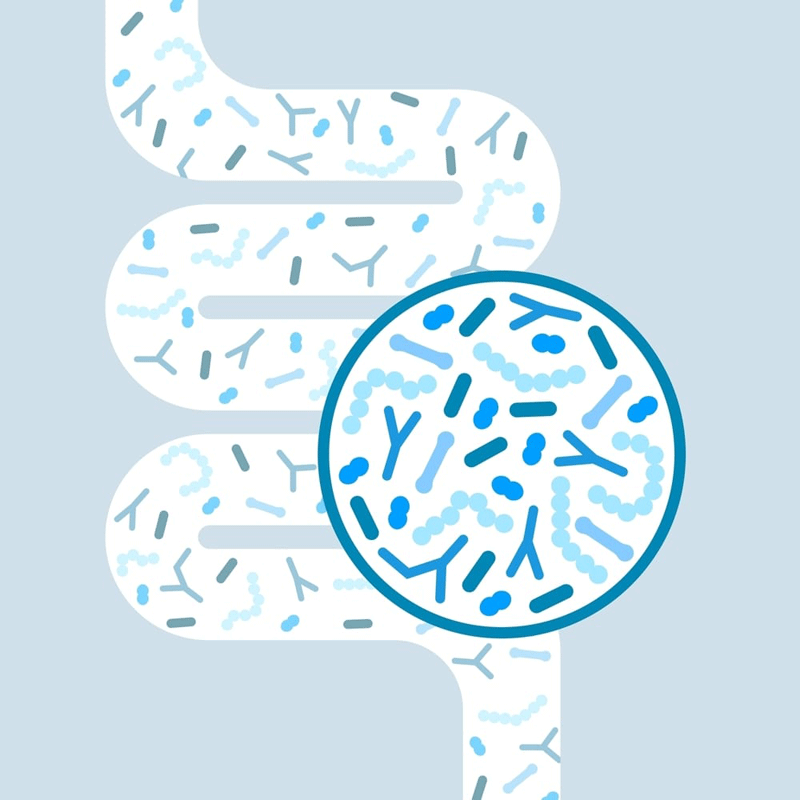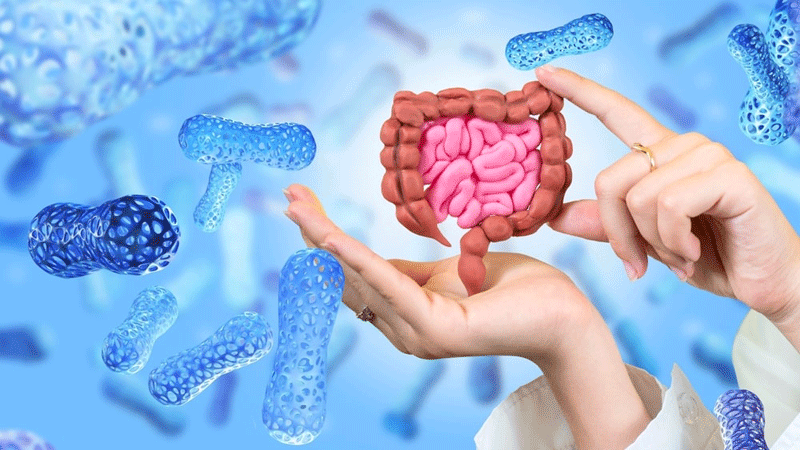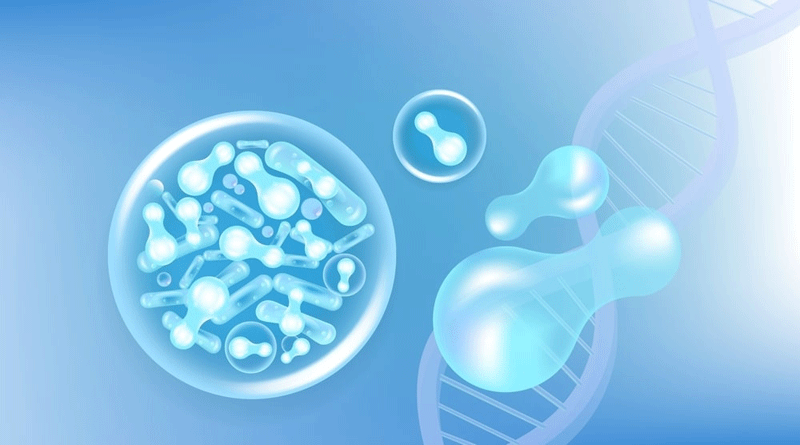Feeling bloated? The discomfort, the swelling? It can make your day-to-day activities feel like an uphill battle. But have you ever considered that microscopic organisms might be the secret to easing your bloating? Probiotics have been lauded for their gut-boosting benefits, but do they aid in eliminating bloating? Dive with us into this comprehensive guide to find whether these good bacteria are the natural remedy you’ve been searching for.
Probiotics can help with bloating, especially if it stems from a microbiome imbalance or certain digestive issues. However, it’s important to choose a probiotic supplement with clinically studied strains of bacteria and to keep a consistent routine with use to observe long-term effects. If your bloating is painful or persistent, consider discussing it with a healthcare professional to identify other potential causes and treatment options.
Understanding Probiotics and the Gut

To comprehend the potential benefits of probiotics for bloating, it’s important first to understand their role in our gut. Our gut is a complex ecosystem comprising trillions of bacteria, known as the gut microbiome. These microorganisms are crucial in maintaining our overall health, including digestion, immune function, and mental well-being.
Probiotics are live microorganisms that provide health benefits when consumed in adequate amounts. They can come from various sources like fermented foods (yogurt, sauerkraut) or dietary supplements. Probiotics work by colonizing and diversifying the gut microbiome, promoting a healthy balance of bacteria.
A healthy gut microbiome consists of diverse beneficial bacteria that aid in the proper digestion and fermentation of food. However, factors such as poor diet, stress, illness, or antibiotic use can disrupt this delicate balance and lead to an imbalance known as dysbiosis.
When dysbiosis occurs, harmful bacteria may multiply while beneficial ones decrease in number, resulting in digestive issues such as bloating. This is where probiotics come into play they help restore microbial diversity, promote balanced digestion, and alleviate symptoms like bloating.
Probiotics have been extensively researched for their potential therapeutic effects on various gastrointestinal conditions. While not all strains have the same impact on bloating relief, certain strains have shown promising results in reducing abdominal distension and improving overall digestion.
Now that we have a better understanding of probiotics and their role in gut health, let’s explore the relationship between probiotics and bloating.
The Relationship Between Probiotics and Bloating
Bloating is a common and uncomfortable feeling of tightness, stretching, and pressure in the stomach after eating. Some people experience bloating regularly due to food intolerance, eating too fast, digestive issues like constipation or acid reflux, or an imbalance in the gut microbiome, such as small intestinal bacterial overgrowth (SIBO).
How Probiotics Can Alleviate Bloating
Probiotics can often help with bloating, particularly when it stems from a microbiome imbalance or certain digestive issues. They introduce beneficial bacteria into the gut, improving digestion and reducing bloating symptoms.
For example, studies have shown that specific strains of Lactobacillus and Bifidobacterium can effectively reduce bloating associated with irritable bowel syndrome (IBS). These strains modulate gut motility, reduce gas production, and normalize bowel movements.
Variability in Probiotic Responses
It’s important to note that not all individuals may respond equally to probiotics for bloating relief. Factors such as individual variations in gut microbiota composition, underlying health conditions, and the specific strain(s) of probiotics consumed might influence their effectiveness.
Some individuals may find immediate relief from bloating symptoms upon consuming a probiotic supplement, while others may not experience significant improvements. One reason for this variability could be individual differences in gut microbiota composition or other underlying health conditions.
Additionally, while probiotics can benefit some individuals experiencing bloating related to microbial imbalances or certain digestive issues, they may not offer the same benefits for everyone. Some individuals are considered “probiotic resisters,” meaning their gut does not respond well to probiotics. It’s crucial to research the specific probiotic you’re taking and consider single-strain probiotics that have gone through third-party testing or have product quality seals to ensure efficacy.
Learn More: Can Men Take Womens Probiotics Fearlessly?
Exploring the Underlying Causes of Bloating

Bloating is a common and uncomfortable feeling of tightness, stretching, and pressure in the stomach after eating. Many people experience bloating regularly, but what are the underlying causes that contribute to this bothersome symptom?
One primary cause of bloating is food intolerance. Certain individuals may have difficulty digesting specific types of food, such as lactose or gluten. Consuming these foods can lead to excessive gas production and abdominal discomfort. Identifying and avoiding these triggering foods can help alleviate bloating.
The Impact of Eating Habits on Bloating
Another factor that can contribute to bloating is eating too fast. When we eat quickly, we tend to swallow more air, which can result in excess gas in the digestive system. Slowing down during meals and practicing mindful eating can help reduce bloating caused by swallowing air.
Digestive Disorders and Bloating
Digestive issues like constipation and acid reflux can also cause bloating. Sluggish bowel movements can lead to trapped gas and a distended abdomen. Acid reflux occurs when the stomach acid flows back into the esophagus, causing a feeling of fullness and bloating. Managing these digestive issues through lifestyle changes or medical interventions may help alleviate bloating.
Microbiome Imbalances as a Cause

Additionally, an imbalance in the gut microbiome, such as small intestinal bacterial overgrowth (SIBO), can contribute to bloating. SIBO occurs when bacteria overgrow in the small intestine, leading to gas production and bloating. Restoring a healthy gut microbiome through probiotic supplementation can help address this root cause of bloating.
It’s important to note that while probiotics can be beneficial for bloating relief, they may not address all underlying causes. Therefore, it’s essential to consult with a healthcare professional to identify and address any specific factors contributing to your bloating symptoms.
Now that we have explored the underlying causes of bloating, let’s explore how probiotics can alleviate this discomfort.
Ways Probiotics Can Reduce Bloating
Probiotics, often called “good bacteria,” are living microorganisms that provide health benefits when consumed. They can help restore a healthy gut microbiome and alleviate bloating, especially in cases where it stems from a microbiome imbalance or certain digestive issues.
Imagine struggling with regular bloating episodes after meals. By incorporating a high-quality probiotic supplement into your routine, you may experience a reduction in bloating due to the improved balance of good bacteria in your gut. This can lead to better digestion and overall comfort throughout the day.
Learn More: The Ultimate Guide to Combining Prebiotics and Probiotics for Gut Health
Mechanism of Action: How Probiotics Work

Probiotics work by promoting a healthier balance of microorganisms in the gut. They help regulate bowel movements and enhance the breakdown of food particles, reducing gas production and bloating. Additionally, some probiotics produce short-chain fatty acids, which can improve intestinal health and reduce inflammation, further aiding in bloating relief.
Choosing the Right Probiotic
It’s important to note that not all probiotics are created equal. Researching the specific strains included in your chosen probiotic is essential for optimal results. Look for single-strain probiotics that have undergone third-party testing or have seals indicating product quality.
Much like tending to a garden by nourishing it with the right nutrients and ensuring a healthy ecosystem, taking high-quality probiotics helps create an environment in the gut that supports efficient digestion and reduces bloating.
Considering Individual Variability
However, while probiotics work for many individuals, some people may experience bloating after taking them. This response could be due to various factors, such as a food in their diet that doesn’t agree with their body, inadequate hydration, or the timing of probiotic intake. If bloating is painful and persistent, consulting a healthcare professional for further guidance may be wise.
Potential Risks and Side Effects
While probiotics have gained popularity as a natural remedy for various health issues, including bloating, it is important to consider potential risks and side effects associated with their use. Probiotics are generally considered safe for most people, but certain factors must be aware of.
Initial Discomfort with Probiotics
One potential risk is that some individuals may experience gas and bloating initially when starting probiotics. This could be due to the introduction of beneficial bacteria into the gut, which can lead to temporary digestive discomfort. However, this usually resolves within a few days as the body adjusts to the new balance of gut bacteria.
Variability in Probiotic Responses
It’s also worth noting that not all strains of probiotics work the same way for everyone. Individual responses to probiotics can vary, and what works well for one person may not provide the same benefits for another. Some individuals may even be classified as “probiotic resisters,” meaning they do not respond favorably to probiotic supplementation.
Personal Experiences of Probiotics
For instance, Sarah tried a popular probiotic brand recommended by her friend to alleviate her bloating symptoms. However, instead of experiencing relief, her bloating worsened, leaving her feeling frustrated and disappointed.
Serious Concerns for Certain Individuals
Probiotics can lead to infections in rare cases, particularly in individuals with compromised immune systems or underlying health conditions. Therefore, it is advisable to consult with a healthcare professional before starting any new supplement regimen, especially if you have an immunocompromised condition or are taking medications that may interact with probiotics.
The Importance of Quality and Safety
Additionally, quality and safety should be prioritized when purchasing probiotic supplements. Look for products that have undergone third-party testing or carry seals indicating product quality. This helps ensure that you are consuming a reliable and effective supplement.
Optimizing Probiotic Use and Safety

To enhance the effectiveness and safety of probiotic use for managing bloating, here are some tips:
- Choose clinically studied strains: Look for probiotic supplements that contain clinically studied strains of bacteria. This means that the specific strains in the supplement have been tested in clinical trials and shown to be effective for targeted health benefits, such as reducing bloating.
- Follow recommended dosage instructions: It is important to follow the instructions provided by the manufacturer or your healthcare professional. Taking more than the recommended dosage will not necessarily offer additional benefits and may increase the risk of side effects.
- Be consistent with probiotic use: Consistency is key in probiotics. Incorporate them into your daily routine and stick to a regular consumption schedule. This allows the beneficial bacteria to establish and maintain a balanced gut microbiome over time.
- Consider combining with digestive enzymes: If bloating is associated with impaired digestion, combining probiotics with digestive enzymes may help improve symptoms. Digestive enzymes can assist in breaking down food and promote optimal nutrient absorption.
- Maintain a healthy lifestyle: Probiotics work best when combined with a healthy lifestyle. Consume a balanced diet rich in whole foods, fiber, and prebiotics (which act as food for the beneficial bacteria). Stay hydrated, exercise regularly, and manage stress levels effectively.
It’s worth mentioning that while probiotics can be helpful for some individuals in managing bloating, they may not benefit everyone. If you continue to experience persistent or severe bloating, consulting with a healthcare professional or nutritionist for further evaluation and personalized guidance may be beneficial.
Now that we have explored potential risks, side effects, and strategies for optimizing probiotic use and safety, let’s delve into notable probiotic strains specifically for their role in managing bloating.
Learn More: Can You Take Too Many Probiotics? Finding Balance for Gut Health
Notable Probiotic Strains for Managing Bloating
When finding the right probiotic strain for managing bloating, it’s important to focus on those specifically studied and shown promising results in this area. While numerous strains are available, several notable ones stand out for their potential effectiveness in reducing bloating and improving digestive wellness. Let’s explore some of these strains:
Lactobacillus acidophilus: This particular strain of bacteria is commonly found in the human gut and has been extensively studied for its role in promoting digestive health. Lactobacillus acidophilus has shown potential in reducing bloating by aiding in the breakdown of lactose, a sugar that can cause gas production and discomfort.
Bifidobacterium lactis: Another strain that has garnered attention is Bifidobacterium lactis. It has been linked to improved gut health and reduced bloating symptoms. Research suggests this strain may help regulate bowel movements, alleviate gastrointestinal inflammation, and support overall digestive function.
Lactobacillus plantarum: Known for its ability to withstand harsh stomach acid and bile, Lactobacillus plantarum is an intriguing option for managing bloating. This resilient strain has been found to reduce gas production and support a healthy gut environment.
Bifidobacterium longum: Bifidobacterium longum is a probiotic strain with diverse benefits, including its potential to reduce bloating. It aids in modulating gut microbiota and promoting a healthy balance of bacteria in the intestines, which may help alleviate symptoms of bloating and improve overall digestive comfort.
Saccharomyces boulardii: Although not a bacterial strain but rather a beneficial yeast (probiotic), Saccharomyces boulardii has demonstrated potential in alleviating bloating and other digestive symptoms. It protects the gut from harmful bacteria and restores the balance of beneficial microbes.
For instance, imagine Sarah, who has been struggling with persistent bloating after meals. She decided to try a probiotic supplement containing Lactobacillus plantarum and Bifidobacterium longum as they are known for their positive effects on bloating. Over time, she noticed a significant reduction in her bloating symptoms, leading to improved digestive comfort and a happier gut.
It’s important to note that individual responses to probiotics can vary, and what works for one person might not work for another. The effectiveness of specific strains depends on factors like an individual’s gut microbiome composition, overall health, and the underlying cause of bloating. Therefore, it’s recommended to consult with a healthcare professional or a registered dietitian who can provide personalized advice based on your unique situation.
While these notable probiotic strains show promise in managing bloating symptoms, selecting a high-quality probiotic supplement that contains evidence-backed bacterial strains is essential. Factors such as ingredient quality, a formulation that resists stomach acid, and potentially synergistic combinations with prebiotics or postbiotics should also be considered when choosing the right probiotic for your specific needs. Finding the most suitable probiotic for bloating may require some trial and error, but it can substantially improve digestive wellness and reduce discomfort.
In addition to probiotics, what other dietary changes can help reduce bloating?
In addition to probiotics, dietary changes such as reducing the intake of gas-producing foods like beans, lentils, and cruciferous vegetables can help reduce bloating. Consuming smaller and more frequent meals, avoiding carbonated drinks, and staying hydrated can also minimize bloating.
Can probiotics also help with digestive issues like constipation or diarrhea?
Probiotics, live beneficial bacteria that can restore the balance of gut flora and promote healthy digestion, can also help with digestive issues like constipation or diarrhea.
Are there any risks or side effects associated with taking probiotics for bloating?
While probiotics are generally safe for most people, there can be some risks and side effects associated with taking them for bloating. These may include digestive issues such as gas, bloating, and diarrhea, especially when starting probiotics or taking high doses.
How soon after taking probiotics can one expect to see a reduction in bloating?
The timeline for seeing a reduction in bloating after taking probiotics can vary. Some individuals may experience relief within a few days, while others may take several weeks. The efficacy of probiotics in reducing bloating can depend on factors such as the individual’s gut health, diet, and specific strains of bacteria used in the probiotic supplement.
